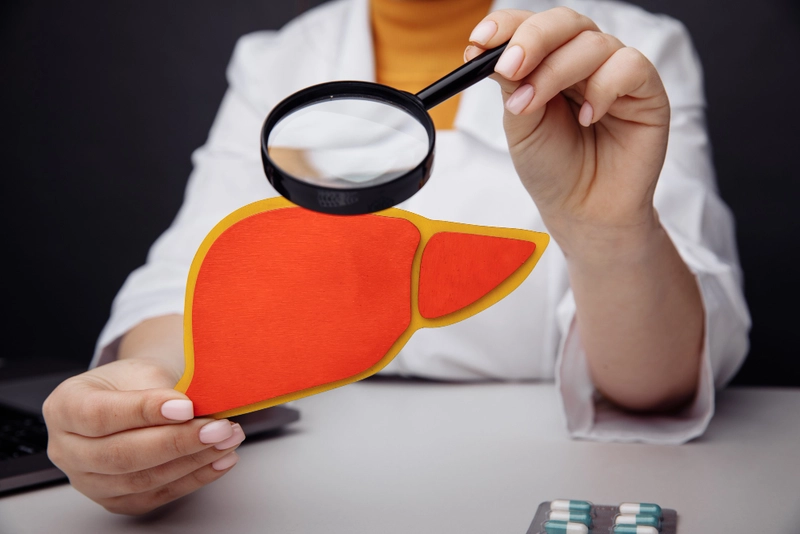- Published on: Sep 11, 2021
- 2 minute read
- By: Second Medic Expert
What Are The Symptoms Of Acidity & How Can I Reduce Acidity?
Ever experienced that uncomfortable burning sensation in your chest or throat? It might be acidity, a common digestive issue that affects many. But fear not – understanding its symptoms and knowing how to reduce acidity can bring relief. Join us on a journey to unravel the mysteries of acidity, exploring simple home remedies, medications, and the possibility of seeking guidance through online doctor consultation.
What is Acidity?
Before we dive into the symptoms and solutions, let's grasp the basics. Acidity, also known as acid reflux, occurs when the stomach acid flows back into the esophagus, causing discomfort. It's like an unwelcome guest disrupting your digestive party.
Symptoms of Acidity
1. Heartburn: A burning sensation in the chest, often rising towards the throat, is a classic symptom of acidity. It feels like a fiery pit that just won't settle.
2. Regurgitation: Ever had a sour taste in your mouth, like something from your stomach decided to revisit? That's regurgitation, a telltale sign of acidity.
3. Bloating: Feeling excessively full or bloated after meals? Acidity could be playing a part in disrupting your digestive harmony.
4. Burping: Frequent burping, especially when accompanied by the taste of stomach acid, is another symptom you shouldn't ignore.
5. Nausea: Acidity can sometimes bring along a feeling of queasiness or nausea, making you wish for a pause button on life.
Causes of Acidity
Understanding the triggers of acidity is crucial for effective management. Common causes include:
1. Unhealthy Eating Habits: Overindulging in spicy, oily, or acidic foods can lead to acidity. Your stomach might protest against that extra helping of hot wings.
2. Skipping Meals: Going for long hours without eating can cause an imbalance in stomach acids, paving the way for acidity.
3. Obesity: Carrying excess weight puts pressure on your stomach, increasing the likelihood of acid reflux.
4. Smoking and Alcohol: These indulgences can weaken the lower esophageal sphincter, the gateway between your stomach and esophagus, leading to acid reflux.
5. Stress: The infamous stress factor! High-stress levels can wreak havoc on your digestive system, making acidity more likely to strike.
Acidity Treatment at Home
Now, let's explore some easy home remedies to calm the acidity storm:
1. Ginger Tea: Ginger has natural anti-inflammatory properties that can soothe the stomach. Enjoy a warm cup of ginger tea for relief.
2. Bananas: This humble fruit is a natural antacid. Snack on a banana to neutralize excess stomach acid.
3. Aloe Vera Juice: Aloe vera is not just for skincare. Drinking aloe vera juice can provide relief from acidity due to its cooling properties.
4. Chewing Gum: Chewing gum stimulates saliva production, which helps neutralize stomach acid. Opt for sugar-free gum for an added health boost.
5. Fennel Seeds: Chewing on fennel seeds post-meals can aid digestion and alleviate acidity symptoms.
Acidity Medicine Options
When home remedies aren't sufficient, medications can come to the rescue:
1. Antacids: Over-the-counter antacids can quickly neutralize stomach acid, providing immediate relief from acidity symptoms.
2. H2 Blockers: These medications reduce the production of stomach acid, offering longer-lasting relief compared to antacids.
3. Proton Pump Inhibitors (PPIs): PPIs are effective in reducing the production of stomach acid and are often prescribed for more severe cases of acidity.
Seeking Professional Advice through Online Doctor Consultation
Persistent acidity issues might warrant professional guidance. The convenience of online doctor consultation allows you to discuss your symptoms, receive personalized advice, and even order prescribed medication from the comfort of your home.
Lifestyle Changes for Long-Term Relief
Preventing acidity involves making some lifestyle adjustments:
1. Eat Smaller, More Frequent Meals: Opt for smaller meals throughout the day to prevent excessive stomach acid production.
2. Stay Hydrated: Drinking plenty of water helps dilute stomach acid, reducing the likelihood of reflux.
3. Avoid Trigger Foods: Identify and steer clear of foods that trigger acidity symptoms, such as spicy, fried, and citrusy items.
4. Maintain a Healthy Weight: Shedding excess pounds can alleviate pressure on your stomach, reducing the risk of acid reflux.
Acidity may be a common woe, but armed with knowledge and simple solutions, you can keep it at bay. From understanding symptoms to exploring home remedies, medications, and seeking professional advice through online consultations, managing acidity is within your grasp. Remember, your digestive system deserves a harmonious melody – let's make sure it stays in tune.
Read FAQs
A. Reducing acidity quickly involves simple steps. Drink water, chew gum, or sip on ginger tea. Antacids provide instant relief, and avoiding trigger foods helps prevent acid reflux.
A. Lowering acidity requires lifestyle changes. Eat smaller meals, stay hydrated, and avoid trigger foods like spicy and fatty items. Probiotics and aloe vera juice can also promote a healthier stomach environment.
A. The main reason for acidity is often unhealthy eating habits. Consuming spicy, oily, or acidic foods, skipping meals, obesity, and stress are common triggers. Identifying and addressing these factors can help manage acidity.
Our Services
Request A Callback
Recent Posts
Can Fatty Liver Be Reversed Completely?
Jul 31,2025
How Your Sleep Schedule Affects Digestion
Jul 28,2025
How to Spot Signs of Hormonal Imbalance in Men
Jul 26,2025
Do You Need a Digital Detox? Signs and Symptoms
Jul 25,2025
How Walking Daily Affects Your Blood Pressure
Jul 24,2025










